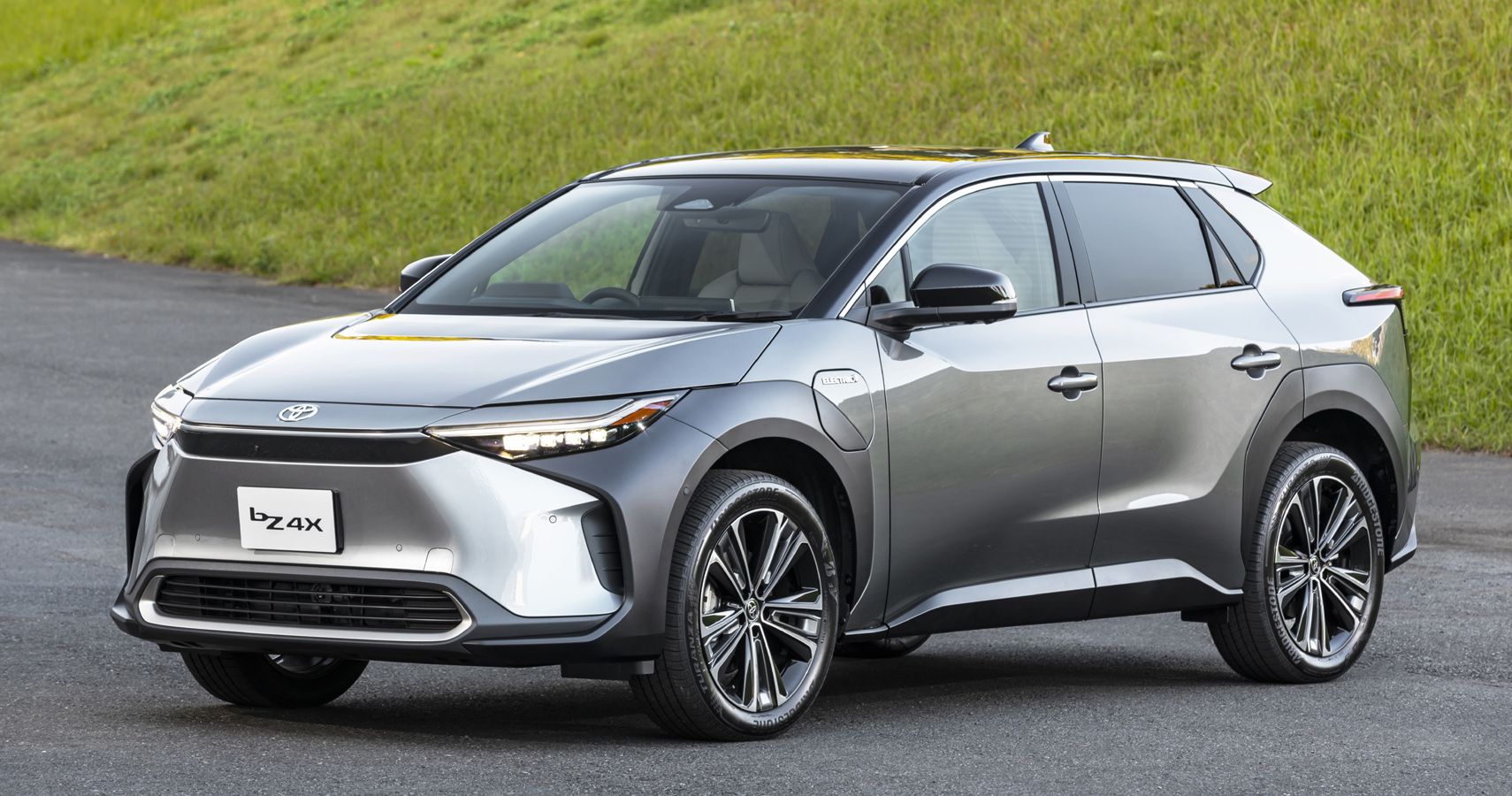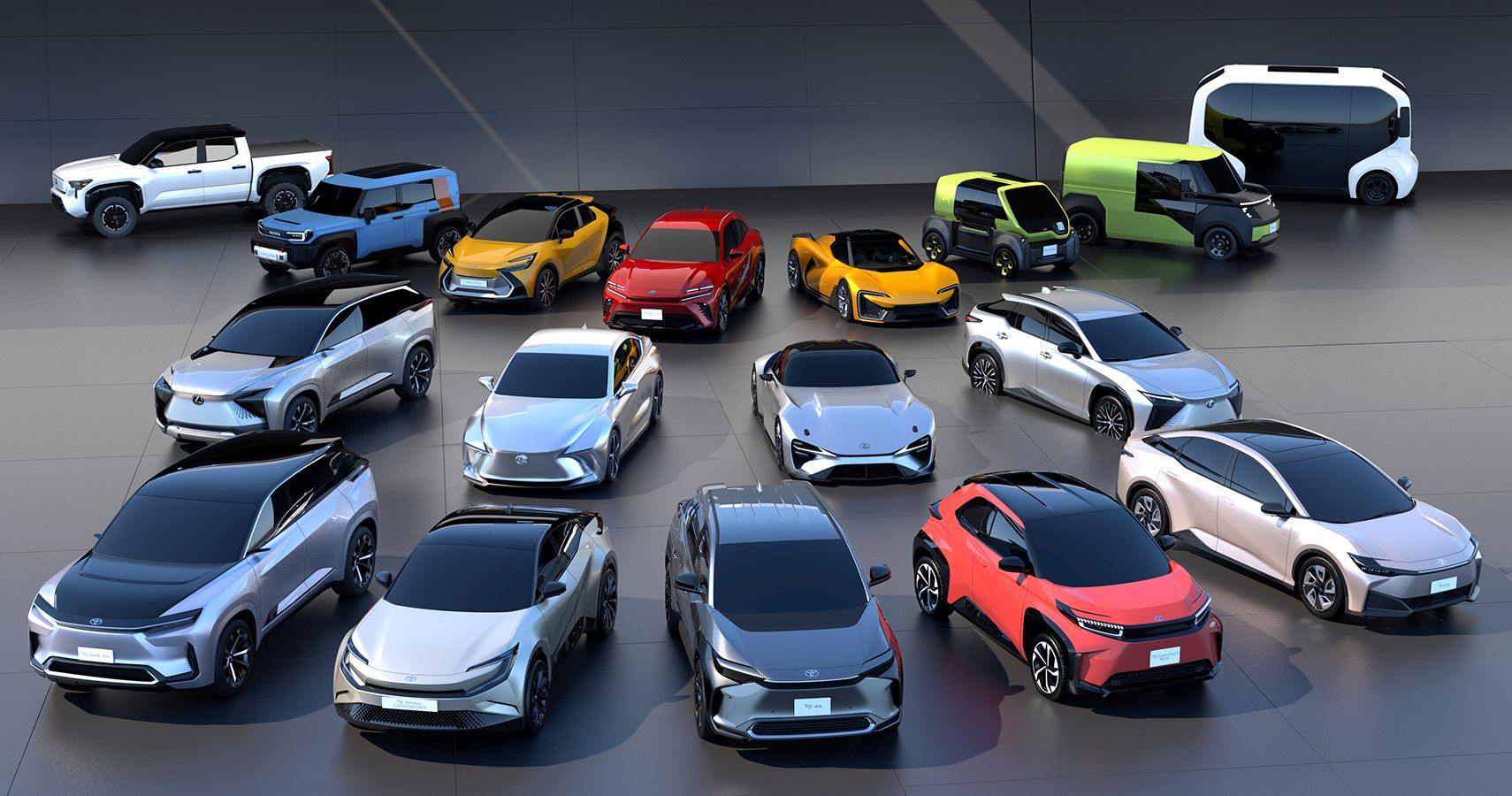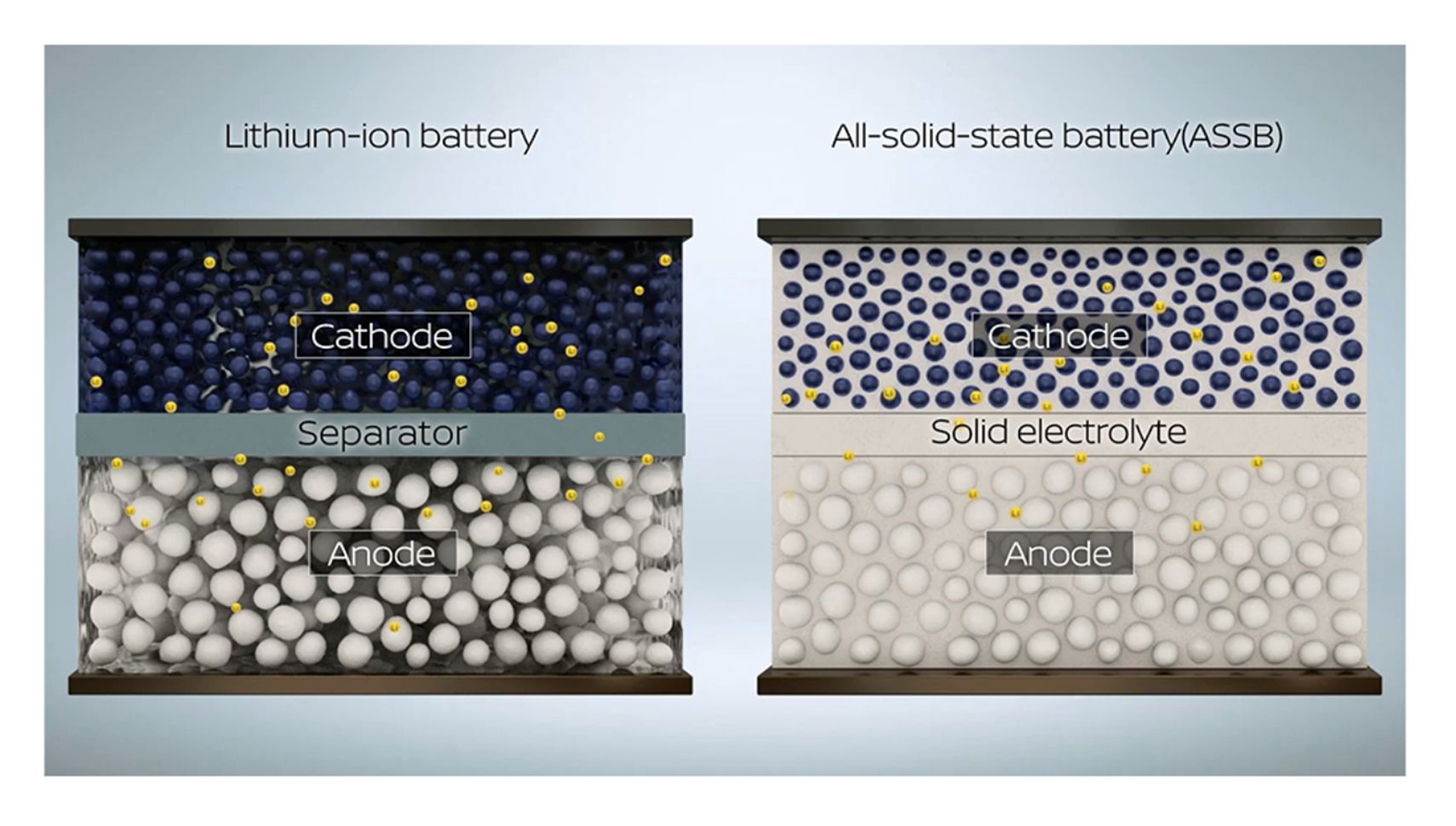What’s the one big thing on everyone’s mind when it comes to EVs? The range, of course, and this is why Toyota’s recently-announced solid-state batteries seem mind-blowing, as they claim over 900 miles of range on a single charge. Amidst news of being slow in the electric car race, Toyota’s recent announcement shows the Japanese carmaker is very much on track with its EV battery developments and plans on launching EVs that could rival the market leaders of today.
Toyota released a full roadmap of its EV plans, proving that while it may have lagged, it plans to catch up to the current electric vehicle targets soon. The Japanese carmaker may even overtake them by the end of the decade by launching two solid-state batteries. That said, first up is a next-generation lithium-ion battery pack in the works for 2026 with a surprising range again, so scroll down for all the details.
Toyota Plans To Build A 620+Mile EV From Next-Gen Lithium Batteries
Before we talk about solid-state batteries, Toyota first spoke of bettering its existing Lithium Nickel Cobalt Manganese (NCM) battery chemistry for a 20 percent increased driving range while slashing production costs by 20 percent as well. The next-gen batteries are likely to go on the road by 2026, and Toyota promises a cruising range of over 620 miles on a single, full charge. The idea is to expand the lineup of Toyota EVs by letting buyers have a better driving range and lower costs, and on paper, it sounds great.
Toyota plans to offer two next-gen battery types in 2026 and 2027, including performance and popularized versions. The performance version of the battery is likely to use the same battery chemistry as Toyota’s bZ4X electric SUV but with 458 miles of driving range instead of the current 382 miles (both CLTC figures). That said, the current EPA driving range is only 252 miles.
As per Toyota, the popularized version of the battery will also offer the same 20 percent rise in driving range but reduce costs by 40 percent, as compared to its first-ever electric model, using a lithium iron phosphate (LFP) battery chemistry.
Further up in its battery evolution, Toyota plans to include another high-performance battery that will combine the best of a bipolar structure with a high nickel cathode to increase cruising range by 10 percent, reduce costs by 20 percent, and offer quick charging (10 to 80 percent) in 20 minutes or less.
How Toyota's Breakthrough Solid-State Battery Technology Can Make It A Tesla Killer?
Toyota also claimed to discover a technological breakthrough with its solid-state EV battery tech that will improve cruising range by another 20 percent. Targeting mass production in 2027-2028, the Japanese auto giant also plains to aim at a 10-minute quick charge and an impressive 745 miles of range with the first-gen Solid-state batteries. Toyota is also working on a higher-performance version of the battery, under R&D for now, which aims at a 50 percent better cruising range, taking it over 900 miles.
Even the first-gen Solid-State batteries from Toyota can shame the record-setting 520-Mile Lucid Air in a range test. The best-selling EV of 2023, the Tesla Model Y, will have an even tougher time standing up to future Toyota EVs. The most expensive and efficient Tesla Y trim has a maximum range of 330 miles and fast charges in 15 minutes using the Tesla Supercharger.
So, if all of this comes to fruition, the new wave of Toyota Solid-State EVs will pack double the driving range and will charge 67% quicker when compared to the 2023 Toyota bZ4X.
Solid-State Batteries Can Make Toyota One Of The Leading EV Makers By 2030
All the claims made by Toyota sound great and achievable, and the Japanese automaker has done some serious homework to back these claims. Toyota has over 1,000 patents in solid-state battery research. But the only problem is the failed promises from before. Earlier claims by Toyota included that they would have their first EV powered by a solid-state battery out in 2021. The projected dates shifted to 2022, then 2025, and now the promise is for 2028. Will Toyota be able to deliver this time around?
Interestingly, the new strategy came just a day after several Toyota shareholders revealed that they planned to vote to remove Akio Toyoda from the board. Known to be an EV critic, many feel Toyoda failed to bring Toyota to the all-electric era, and the delays are upsetting the shareholders and the Japanese government alike. For now, Toyota plans to sell an annual number of 3.5 million electrified vehicles by 2030, and if it manages to launch these high-range batteries, things might take a turn in Toyota’s favor, making it a leading carmaker in the EV world.
Why Are Solid State Batteries Better Than Li-Ion Batteries?
Most of the batteries in EVs today are lithium-ion packs, and they use a liquid electrolyte solution that keeps the cathode and the anode apart. The main problem with lithium-ion batteries lies in the safety. Smaller-sized lithium-ion batteries power up most smartphones currently and carry a risk of damage due to temperature changes and leakage, sometimes leading to explosions and fire hazards. The risk gets amplified in the case of the larger batteries used in electric vehicles.
A solid-state battery is safer because it uses a solid electrolyte, given that it maintains form even if the electrolyte gets damaged with little to no risk of fire or explosion. Another reason why solid-state batteries may be the next big thing in the EV race is that increasing the capacity of the higher-density solid-state battery is easier, safer, and much cheaper than piling on one lithium-ion battery after another in a car. Since the current EV race focuses on better mile range, solid-state batteries seem to be the safer, cheaper, and more logical way to go.
Toyota Promises Next-Gen Batteries Will Be Cheaper And Better
Several Toyota executives confirmed the automaker’s EV plans by the end of the decade, talking about new technologies to keep its EVs updated and exciting for consumers, including the following:
- Manufacturing upgrades to reduce costs
- Hypersonic tech to enhance aerodynamics
- EV battery tech, including solid-state batteries
- Fundamental changes to improve EV product appeal
Further, the Japanese automaker also stressed how its EV wing could survive only if it were profitable, and so announced a simple and slim vehicle body structure through Giga casting. It’s a process similar to Tesla's Giga Press that simplifies car production by reducing the number of pieces needed to make a car by making larger molds of the body and parts.
By investing in the EV business on a multi-platform level, Toyota plans to cut production processes, costs, and time for mass-produced EVs, while taking the battery tech to its highest echelons to make sure it emerges at the top end of the EV race, even if it is one of the last to start.
For now, while the government and shareholders urge Toyota to go all-electric, the Japanese automaker continues to stick to a hybrid strategy, which includes EVs, PHEVs, HEVs, and fuel cell vehicles (FCEV). At the end of the presentation, though, Toyota revealed a multi-pathway platform by converting the powertrain of a Crown into an electric car, proving it was well on its way in the EV game.







